Orthogonioptilum monochromum
|
|
Updated as per T. Bouyer's Catalogue, 1999, February 12, 2006
Updated as per Darge's Saturniidae I, February 12, 2006
Updated as per Saturnafrica #12, July 2012, Darge (Ndoki PN, Sangha, southwestern CAR); February 2, 2014
|
Orthogonioptilum monochromum
or-thoh-goh-nee-op-TIL-umMmon-oh-KROH-mum
Karsch, 1892
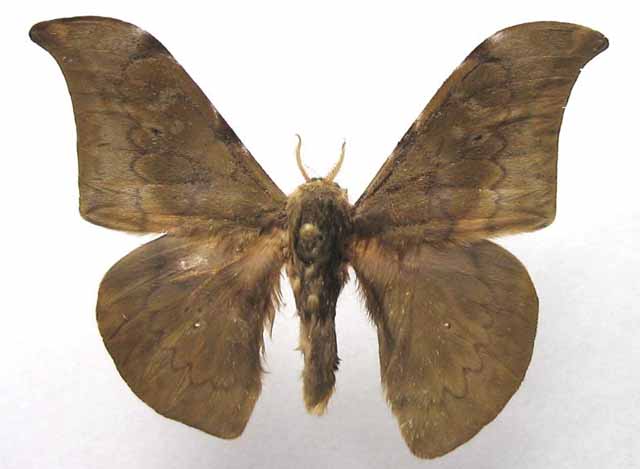
Orthogonioptilum monochromum male, Cameroon, courtesy of
Michel Lapoint
| TAXONOMY:
Superfamily: Bombycoidea Latreille, 1802
Family: Saturniidae Boisduval, [1837] 1834
Subfamily: Micragoninae, Cockerell, 1914
Genus: Orthogonioptilum, Karsch, 1893 | |
MIDI MUSIC
"Moon River"
copyright C. Odenkirk
ON.OFF
<bgsound src="moon.mid" LOOP=FOREVER>
|
DISTRIBUTION:
Orthogonioptilum monochromum
(wingspan: males: 55-65mm; females: 65-78mm) flies in
Cameroon (common in southern and central Cameroon),
southeastern
Nigeria,
Gabon and southwestern
Republic of Central Africa: Sangha: Ndoki PN (SA#12).
I suspect it also flies in Equatorial Guinea
including Bioko Island.

Orthogonioptilum monochromum, Sud Province, Cameroon, 55mm,
courtesy
of Otso Reunanen, id by Bill Oehlke.
The male forewing is quite falcate and the hindwing is very
rounded. Basic ground colour is a uniform dull brown to olive
brown with the transverse line distinct. Cell spots are very
small and usually single.
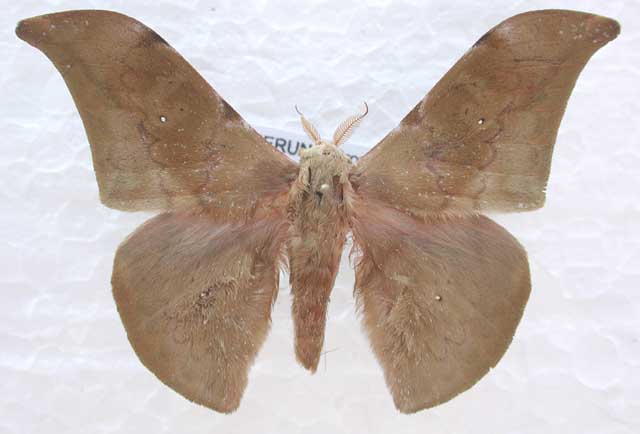
Orthogonioptilum monochromum male, Cameroon,
courtesy
of Eric van Schayck, id by B. Oehlke
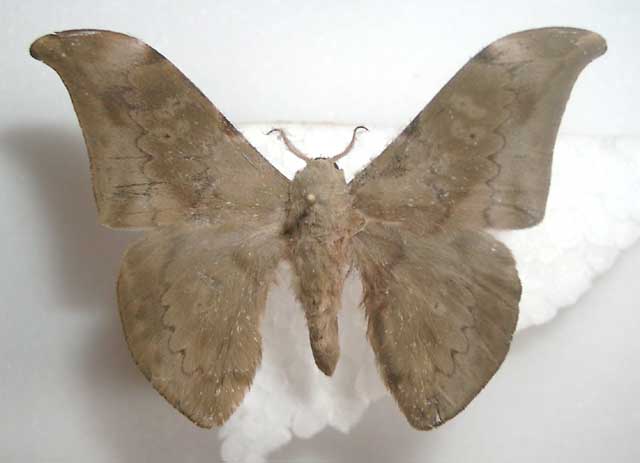
Orthogonioptilum monochromum male, wingspan: 62mm, Elone (Sud Province)
Cameroon,
July 2006, courtesy of Sebastian Brandner, identification by Bill Oehlke.
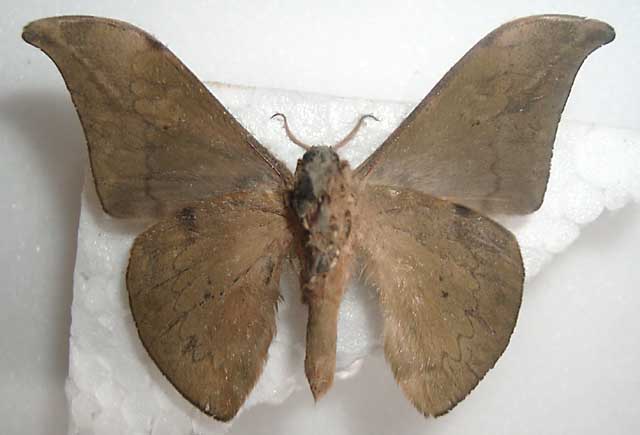
Orthogonioptilum monochromum verso, wingspan: 62mm, Elone (Sud Province)
Cameroon,
July 2006, courtesy of Sebastian Brandner, identification by Bill Oehlke.
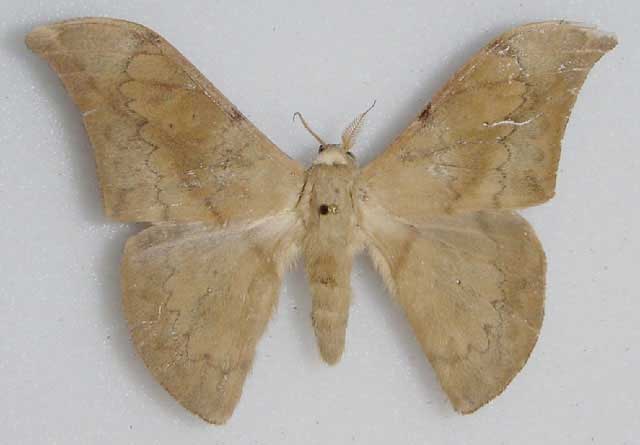
Orthogonioptilum monochromum ?? male, (67mm) Elone, Cameroon,
courtesy
of Sebastian Brandner, id by B. Oehlke
The paler specimen from Elone, Cameroon, is a bit larger than
indicated by Darge, but it seems a good match
(although lighter and larger)
for what flies in the area. O. obamba has a greater size
(66-69mm), but has not been reported so far to the east in Cameroon,
and it is generally quite rare. I have also posted this moth to the
O. obamba page, however. I notice an offset in the transverse lines
from the forewing to the hindwing consistent with Darge's image
of O. obamba, and he mentions it flies with O. bernaudi
which was also taken from the immediate area.
FLIGHT TIMES AND PREFERRED FOOD PLANTS:
This moth probably
flies in March, May, July and October-November.
Orthogonioptilum monochromum larval hosts are unknown.
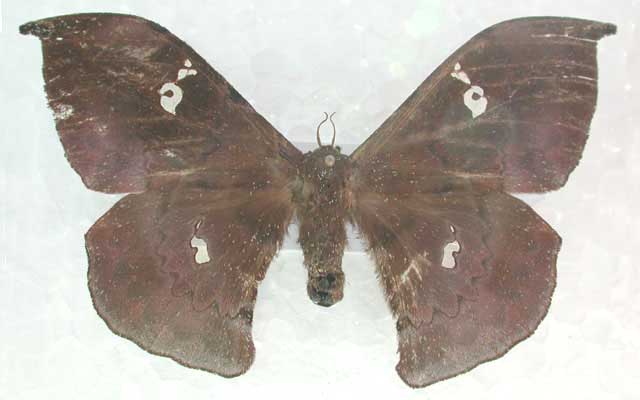
Orthogonioptilum monochromum female, Cameroon, courtesy of
Eric van Schayck
ECLOSION, SCENTING AND MATING:
The female has the forewing apex greatly extended with a thin strip.
The anal angle of the hindwing is very clearly lobed. The body and wings
are dark like those of the male, but with a bit of a reddish tinge.
The transverse line is hard to see, but the other lines are a bit more distinct.
On the forewing there are two greyish areas.
The windows on the forewing consist of a larger circular hyaline spot
with a dark scaled dot near its center, bridged over by two smaller
hyaline areas. On the hindwing, the larger spot is oval and a little
extended. There is some grey scaling along the inner margin.
EGGS, LARVAE, COCOONS AND PUPAE:
Larval Food Plants
It is hoped that this alphabetical listing followed by the common
name of the foodplant will prove useful. The list is not exhaustive.
Experimenting with closely related foodplants is worthwhile.
Use your browser "Back" button to return to the previous page.
Return to Orthogonioptilum Genus
Go to Index for African Saturniidae
Go to Main Index for all Worldwide Saturniidae
The pronunciation of scientific names is
troublesome for many. The "suggestion" at the top of the page is
merely a suggestion.
There are many collectors from different countries whose
intonations and accents would be different.
The genus name Orthogonioptilum refers to
the nearly right angle at the anal angle of the forewing.
The species name is for the very uniform, single colour
of this moth.






